In this episode of Foresight Africa podcast, Kasirim Nwuke, managing partner at Mirisak & Associates and former chief, green economy, technologies and innovation at the UN Economic Commission for Africa, examines Nigeria’s presidential election results, in which Bola Tinubu was declared the winner, and where challenges from contenders Peter Obi and Atiku Abubakar continue in Nigeria’s courts.
TRANSCRIPT
[music]
ORDU: I’m Aloysius Uche Ordu, director of the Africa Growth Initiative at the Brookings Institution. And this is Foresight Africa podcast.
Since 2011, the Africa Growth Initiative at Brookings has published a high-profile report on the key events and trends likely to shape affairs in Africa in the year ahead. Entitled Foresight Africa, the goal of the publication is to bring attention to these burning issues and to support policy actions to address them.
This is season two of the Foresight Africa podcast in which I engage with the report authors, as well as policymakers, industry leaders, Africa’s youths, and other key figures. Learn more on our website, Brookings dot edu slash Foresight Africa podcast.
My guest today is Dr. Kasirim Nwuke. Kas served over two decades in various capacities at the United Nations Economic Commission for Africa, including as former chief, green economy, technology, and innovation. He is currently managing partner in Mirisak & Associates, a health care company based in Addis Ababa, Ethiopia. Kas is a close observer of the economic and political developments in Africa and he has published extensively on a variety of subjects. Kas authored a brilliant piece in Foresight Africa 2021 titled, “Africa Faces a Hard Choice on the SDGs under COVID-19.” Today, though, he will be focusing on the recent elections in Nigeria, which were held in February 2023.
Kas, welcome to the podcast.
NWUKE: Thank you very much, Aloysius. Thanks for the kind words.
ORDU: Right. So, on the elections, then, what’s your overall assessment of the Nigerian presidential elections, which were held in February?
NWUKE: Looking at the elections from a distance, because I’m in Addis Ababa, Ethiopia, I’m following the the news reports and reports on social media. I can say that in the lead up to the to the elections was filled with hope. Hope because most Nigerians thought that the Electoral Act of 2022 would address many of the challenges we have had in the past, which respect to elections.
And the elections turned out to be the most competitive in Nigeria’s post-1999 history. Over 94 million people were registered. About 87 million, you know, received their voters cards. Unfortunately, only 27 million people voted. And the winning candidate was allocated 8.9 million votes while the opposition combined got about 17 million votes.
It was competitive in the sense that the opposition actually mustered many more votes than the, than the ruling party. It was also unprecedented in another dimension—it was the election where social media was king, you know, in the large extent, youth voices were heard. And interest in policy among young people has risen to an all-time high. It is, in my view, unlikely that the politics of old will return, and I think many more young people are now interested in politics in Nigeria.
The only other things actually that one had to note, and one was that some of the campaigns were very relativist in terms of their of their moral underpinnings. You know, the candidates came with their baggages, of course. But people turned a blind eye to the shortcomings of their candidates and, you know, amplified the shortcomings of the opposite candidate. There was very little debate on the moral issues and the character issues that the candidates had.
There was there was also something, an innovation that I noticed; perhaps not innovation, but, you know, the deployment of an old trick, a quality deployment of Trojans and placeholders. And that is where the opposition will encourage somebody else to run as a candidate in another party in in any state where or any place where they thought they were weak. And then, you know, in a week or two the elections, the person would just basically say I withdraw for candidates A or candidate B or from party C. You know, and there was quite a lot of that, especially during the presidential primaries.
And, _____ though, ethnicity, hate speech and religion became very, very divisive issues in these elections. I’m not sure they’ve ever been mustered as much as they were during this election. And I don’t know how the country is going to heal from a lot of the hate speech and, you know, ethnic, you know, harassment at that time that accompanied elections.
You also had what I would call intra generational envy or competition where politicians will not support the candidate because he or she is of the other age group. And Nigerian society being, been largely gerontocratic, and that favored the older generation.
And finally, fake news was just all over the place. And then there were some silly arguments.
So, that’s the way I characterize it. I think that the outcome disappointed lots of people, and that outcome is now something, you know, that is before the before the courts.
ORDU: You rightly noted that from a distance, indeed, as far as I can recall, this was by far the most competitive elections we’ve held in Nigeria. What, in your view, were the key issues that the voters themselves were particularly interested in and what surprised you the most compared to previous Nigerian elections?
NWUKE: Voters are extremely interested in a in a better governed Nigeria, a Nigeria with accountability and respect for citizenship rights, where there is an end to impunity, a Nigeria that provides jobs and economic opportunities, especially for young people. They want a competent administrator of the economy or a manager of the economy. They want an end to rampant insecurity and the taming of some of the forces of separation. And they wanted, you know, a leadership that will inspire them.
I think those were the key issues: the economy, accountability, governance, security. And that’s the way I saw it. And then the youth opportunity, as I said, was very important. And young people also wanted an end to the impunity of the ______.
I was not surprised by the success of the Labor Party and its candidate. And I think Nigerians, had reached or are approaching in a situation where the old order can no longer exist or persist, and the operators of that order did not know what else to do.
What was surprising to me was that contrary to to prevailing view or beginning wisdom, a candidate of Igbo extraction from the southeast of Nigeria was able to shatter the assumption that, that an Igbo candidate cannot be a pan-Nigerian candidate unless or through, you know, some meetings and some, you know, engineering by political leadership. So, this election has shown that basically a good candidate, no matter the ethnic group, who who represents the views and ambitions of Nigerians, you know, can always rise to the top.
I also think that the myth of a dominant two party system is probably also shattered, that indeed a third party can be viable in Nigeria in spite of the many divisions that we have.
The other surprising thing here was basically the invocation of ethnicity in a way that I’ve never seen before. And then and where politicians actually saw it as a winning strategy in some parts of the country. The the consequence are yet, better imagined that real. So, those are the two things that surprised me.
ORDU: Kas, you mentioned youths a couple of times. Let’s turn to role of the youths, social media, and technology in the elections. Because during the campaign, social media was abuzz that youth votes would influence the overall outcome. And then you mentioned the low turnout relative to the number of registered voters, relative to those who actually picked up their voting cards. So, what in your view, happened to this so-called projected large voter turnout by the youth?
NWUKE: My sense is that there was a large turnout. And that the, what we have recorded as the actual number of votes cast, or number of people participated, is less than the number of people who turned out to vote on election day. In many cases, and in many places, the election started very late. The materials did not arrive on time, so lots of people were discouraged. There were other manipulations and other strategies for voter suppression.
So, it it was deliberate, because in the lead up to the election, everybody knew, or at least analysts thought that if there was a large turnout, it was of youth, third party candidate was going to triumph. So, I think that’s part of perhaps the efforts to to manipulate the elections, there was there was this effort to suppress youth votes.
In my view, if we are ever able to get access to the BVAS data, to the data in the in the in the database, and look at the age profile of the voters in general, I think most of the votes must have been cast by young people. And until we have that data, we cannot easily say that youth did not turn up at all. It is the fervency of the of the youth, it is the fervency of the youth, the “Obidients,” as they call themselves, that drove Obi’s, you know, startling performance, you know, to come to come third
ORDU: Mr. Peter Obi of the Labour Party, as you know, he won the presidential elections in Lagos, which is remarkable because Mr. Tinubu served as governor of Lagos for two terms. And Peter Obi lost Rivers State, which he had been projected to win. Can you help us explain the dynamics at play in what are clearly Nigeria’s two richest states?
NWUKE: This is a very interesting question. The thing is that the the outcome, the result in Rivers State have been disputed. So, one cannot actually say that Tinubu won the Rivers State election until and unless, you know, the recount of the votes cast as requested by the opposition candidates is done. So, while you know, INEC, or the Independent National Electoral Commission, has declared Tinubu as the winner of the election in Rivers State, I think that is still disputed.
With respect to Lagos, I think that what happened was basically that people just wanted change in Lagos. And over time, the ethnic composition of Lagos had changed significantly, that non-indigenous Yorubas, who have been outnumber the indigenous of the state. And that the effort in the lead up to the election to suppress the votes of southeasterners may have failed because the assumption was that the visible minority, you know, ethnic minority minority, the southeasterners, probably consisted of such a large share of voters in Lagos that suppressing that would perhaps minimize the chances of Obi.
ORDU: The fate of the elections, it’s now in the hands of the courts, the judiciary in Nigeria. For the benefit of our listeners, what are the key issues covered by the petitions of both Mr. Peter Obi of the Labour Party and former VP Atiku’s PDP against the APC and the Independent Electoral Commission.
NWUKE: So, one, you know, has to be a little careful in commenting on the matter that is now before the courts. There are three petitions actually against the outcome of the elections: one by Peter Obi, Peter Obi of the Labour Party. The second by Abubakar Atiku of the nongoverning People’s Democratic Party. And another one by another party called I think AA, or so I don’t quite remember the full name of it.
Now let me start with Obi’s … Obi’s election petition. He’s appealing the the outcome of the election on three grounds. The first is that Bola Ahmed Tinubu was not qualified to run for office. And there are two reasons, two arguments he makes there. The first is that by virtue of the problem that Bola Tinubu had with the U.S. authorities with respect to to to proceeds of narcotics trafficking in Chicago in 1993 that Tinubu violated Section 1371d of the Nigerian constitution, which bars anyone who’s who’s engaged in dishonest conduct or forfeited something, you know, from running for president.
The second argument there is that Tinubu’s running mate, Kashim Shettima, was nominated, you know, as a candidate, you know, in two constituencies at the same time. The first constituency was as a senatorial candidate in his home state, Borno central. And then the second constituency is Nigeria as a constituency for the office of President and Vice President. And since tickets are joint, presidential and vice presidential, disqualification of one means disqualification of the ticket as a whole.
Then the second ground of appeal is is Obi alleges that, you know, the elections were marred by, you know, lots of corrupt practices and noncompliance with the provisions of the law, of the regulations of for INEC itself, of these guidelines, and the manuals. Of importance here is the limited use in some cases of the technology that INEC had deployed, which is the Bimodal Voter Accreditation System, basically known as BVAS, to confirm, register, and authenticate voters.
According to the Electoral Act, results were also to be uploaded using BVAS. Obi alleges that this was not done in many, many cases and in many constituencies, and results were not uploaded. And that even up to today, the INEC is still uploading results.
Obi also alleges that INEC, contrary to a court of appeals order refused to grant his legal team access to election records in order to to prepare their case. And so the noncompliance of INEC with the court order is, you know, another grounds for appeal.
And then finally, Obi argues that Bola Ahmed Tinubu was not duly elected, you know, by the majority of Nigerian people. He did not get two constituent requirements. The first is winning a minimum of 25% of votes in two-thirds of the states, which is winning 25% of the votes in twenty-four states, and winning at least 25% of the votes in the federal capital territory. The second one is actually a novelty in Nigeria’s legal issues. There was a decision in 2008 by the Supreme Court that determined actually that, for one to be declared president of Nigeria, he or she must win, you know, at least 25% of votes cast in the federal capital territory.
So, those were the those are the major grounds of appeal of Mr. Peter Obi. And there he’s asking, you know, he’s praying for three outcomes, for one of three outcomes: that Bola Tinubu is not qualified to run and the votes cast for him should be regarded as wasted votes in the sense that they were cast for someone who was not qualified to run; and that he did not get 25% of votes cast in the Federal Capital Territory; and that election should be canceled.
And and he’s also asking that the courts should cancel the election, issue an order compelling INEC to enact the conduct of the election in which he and the second runner up, Atiku, would be the only candidates, Mr. Tinubu having been disqualified for reasons already given.
The second outcome Obi’s asking for is that the courts should declare, should order that Tinubu is not duly elected based on on on based on the votes cast. And that Mr. Obi should be, you know, should be declared the winner of the elections. And that the certificate of return issued to Mr. Tinubu should be returned and Obi should be declared the president.
Or, and as a third outcome Obi’s asking for, that the election should be should be nullified and then a new … and INEC should be ordered to organize in a fresh election.
So, according to many analysts, Obi appears to have covered all possible grounds of appeal, and the view is that his petition is is reasonably very strong.
Now, Atiku’s petition, is you know, basically relies on the same facts, you know, that Obi does rely on. But, the petition of Mr. Atiku Abubakar is very detailed, much, much longer, perhaps twice as long or three times as long as Peter Obi’s. And it provides lots and lots of instance and examples. I think, you know, it seeks to address the the provision that in order for an election to be annulled, you must prove that the malpractices and that the shortcomings are such nature as to substantially affect the outcome of the election. And in the petition, Atiku appears to be to be addressing that.
And, you know, and he’s basically asking the the courts to declare that Bola Tinabu did not win the election, was not duly elected, and that he return the announcement of the declaration of Tinubu as the winner of the election, was wrongful, unlawful, undue, null, and void, to use the words, illegal words, you know. And that Tinubu was not qualified to run at the time of the election.
And he is also praying for either a runoff between him and Tinubu, or the declaration of Mr. Atiku Abubakar as the as the duly elected president of Nigeria.
Of course, one sees in both, you know, some overlaps in the petitions, and one also sees the strategic positioning of the candidates. Neither Atiku nor Obi deliberately makes an argument or a submission that favors the other, that that advances the case of the other. So, to the extent that is possible, Atiku wants Obi be disqualified, and if there’s a runoff it should be between him and Obi; and Obi wants Tinubu be disqualified so that if there’s another election it will be between him and Atiku.
Of course, Tinubu’s team has about 21 days from the date of submission of these petitions to respond, and one, we don’t know what their response is and we cannot, you know, at this time, you know, speak to how much they’ve been able to address some of the some of the claims and assessions made in these two petitions that I’ve referred to.
ORDU: Kas, these are fascinating, fascinating times indeed. And it is very tempting to ask what you think the outcomes of the courts will be, but I will try to avoid pushing you in that direction. But looking at the continent as a whole, it’s only Malawi and Kenya that the courts have overturned election results in the recent past. These are indeed exceptions, as far as I recall, on the African continent. What’s the likelihood or the implications of such an outcome in Nigeria?
NWUKE: Thanks for noting the fact that the case is not ______ and that one cannot actually guess what the outcome of the court cases would be. But one can say that there’s been considerable outcry against the outcome of the elections by international observers. The Financial Times called on the Nigerian judiciary to take a close look at the elections if petitions are brought before it.
Some of Nigeria’s major partners have also condemned the election, the way it was handled. And I’m looking at the the reports of the observers, one must always bear in mind that for the West and for many people, there’s always a tradeoff between democracy and stability and in many cases, no matter how bad and awful elections in, you know, in African countries are, that as long as they advance the notion of stability and we don’t have refugees and conflict that probably satisfied the interests of some of the powers external to the country or external to the continent.
Now, you talk about Malawi and Kenya. Yeah, those were very important decisions by the courts. But you may also want to remember that in 2010, the courts in Côte d’Ivoire also annulled the presidential election. So, Malawi and Kenya are not, you know, the only ones. Let me put it this way—a past president of Nigerian Bar Association said what most Nigerians think, that there’s very little confidence in the judiciary, especially when it comes to elections. And that it’s highly unlikely that Nigeria will follow the path that Côte d’Ivoire, Malawi, and Kenya followed.
But the the evidence that I have seen presented in the petitions, the electronic footprints, you know, that INEC and her officers and people have left may be of such magnitude, of such importance as to make the courts take a much, much closer look at the outcome of the election as the Financial Times suggested it should. I mean, it’s just dicey, it’s 50/50 whether the courts will follow the example of the path of Kenya, Malawi and Côte d’Ivoire. Or will, you know, will just basically said, well, stability is much more important than than democracy. That is that’s left to be seen.
ORDU: Once the dust settles, what is clear is that the next president of Nigeria will face enormous, enormous challenges. Let’s talk about some of these challenges one by one and get your perspective. What do you see on the economy?
NWUKE: The next president probably will inherit a much stronger economy than than most of us think. The economy grew by 3.6% in real terms in 2021, although it weakened a little bit in 2022 to 3.1%. But that is still still still good relative to a population growth rate of about 2.41%. But there are issues, of course, you know, with declining foreign direct investment, outflows, of the non-oil sector—it’s not exporting at a rate that, you know, will help cushion the, you know, adverse effects or adverse shocks from the declining oil market.
So and I mean, the jobs situation is extremely bad. And until and unless the government is able to address that, there will be some degree, some high degree of instability.
I think, and some of the infrastructure investments may may may actually enhance productivity if they’re and properly managed. And and some are then taken to scale. So, the economy shouldn’t be so much of a challenge to the new, to the incoming administration. That’s just my view. I may be I may be wrong there, but that is what I think, because all they have to do is to to improve on the policies already in place to ratchet up growth from 3.1% in 2021 to something much higher.
ORDU: And on security, what do you think?
NWUKE: I think, you know, security is the greatest challenge for the union, for the incoming administration. The Islamists continue to be a problem in the northeast of the country, Boko Haram, and ISWAP in West Africa. Apparently not much … I mean, they remain very strong. Then in the northwest banditry, let me call it … let me say banditry continues to be an issue in the northwest of the country. In the north central, the contest for for land and for for resources and also the contest over religion remains a big issue that’s resulted in thousands of deaths. The quiet war in a way between the herdsmen and and farmers, you know, it’s not been attended to, you know, it’s another source of insecurity that stretches from the Sahel to the to the coast.
And then further south, you have the secessionist movements of the Yoruba nation and the independent indigenous people of Biafra in the southeast and the Yoruba nation in the southwest.
And then you also have insecurity in some of the neighboring countries. In western Cameroon, where there is a, you know, a low level insurgency going on in the anglophone part of west Cameroon, which might spill into parts of southern Nigeria. And also the conflict in Chad remains a source of concern. So, security will be, you know, in my view will be the major headache for the incoming administration.
ORDU: These are indeed uncertain times, Kas. Let me finally turn now to a brilliant essay for us in Foresight Africa 2021. In that essay, you argue that given the significant overlap between the Sustainable Development Goals and the African Union’s Agenda 2063, the Africa we want, efforts should be more focused on achieving Agenda 2063. For the benefit of our listeners could you elaborate further what you mean by that statement?
NWUKE: What I meant by that statement is, you know … can be summarized as follows. First, Agenda 2063 is a much longer time horizon agenda than the SDG , and so the longer term horizon provides for for the ______ of efforts to mobilize resources for the … for a much stronger consensus around the goals. And it also provides for for remedies of corrective actions where, you know, governments fail.
So, I I I think that short term programs, you know, are much … you know, perhaps a few years is not too short a term, but the Agenda 2063 is a much longer term, much longer a prospective plan than than the SDGs.
And I also thought that we don’t have much time now to 2030, but rather than spend so much time and resources trying to achieve what I think, you know, would be impossible to achieve given the goals, 17 goals and how many targets, that the efforts are better deployed to Agenda 2063 for African countries. And when you also look at Agenda 2063, you find that the SDGs can be seen as in as a subset of of some of our Agenda 2063.
So, actually investing more efforts and more resources in achieving Agenda 2063 is is is is ______efforts, you know, in the SDGs.
So, those were the the the arguments I had then in mind when I when I wrote that. Things have changed significantly to actually support some of the things I argued then. The COVID crisis, the the war in Ukraine has basically amplified problems with food security, and that could lead countries more and more to increase investment … increase their allocations to the to the defense industry, or to the military. And that, you know, the global consensus for for the for the SDGs is no longer as strong as it was, you know, when they were adopted by the Security Council.
ORDU: Kas, these are really, really challenging times for the world economy with multiple headwinds, as you alluded to. And of course, for Nigeria in particular, these are very, very uncertain times. Let’s hope for the best for the children, the women, and men of our great country. Thank you very much for joining us today. Appreciate it.
NWUKE: Thank you very much for the opportunity. And I appreciate it, too. Thanks, everyone.
[music]
ORDU: I’m Aloysius Uche Ordu, and this has been Foresight Africa. To learn more about what you just heard today, you can find this episode online at Brookings dot edu slash Foresight Africa podcast. The Foresight Africa podcast is brought to you by the Brookings Podcast Network. Send your feedback and questions Podcasts at Brookings dot edu.
My special thanks to the production team, including Fred Dews, producer; Nicole Ntungire and Sakina Djantchiemo, associate producers; and Gastón Reboredo, audio engineer. The show’s art was designed by Shavanthi Mendis based on a concept by the creative firm Blossom.
Additional support for this podcast comes from my colleagues in Brookings Global and the Office of Communications at Brookings.
- Subscribe and listen to Foresight Africa on Apple, Spotify, and wherever you listen to podcasts.
- Learn about other Brookings podcasts from the Brookings Podcast Network.
- Sign up for the podcasts newsletter for occasional updates on featured episodes and new shows.
- Send feedback email to [email protected].
The Brookings Institution is committed to quality, independence, and impact.
We are supported by a diverse array of funders. In line with our values and policies, each Brookings publication represents the sole views of its author(s).


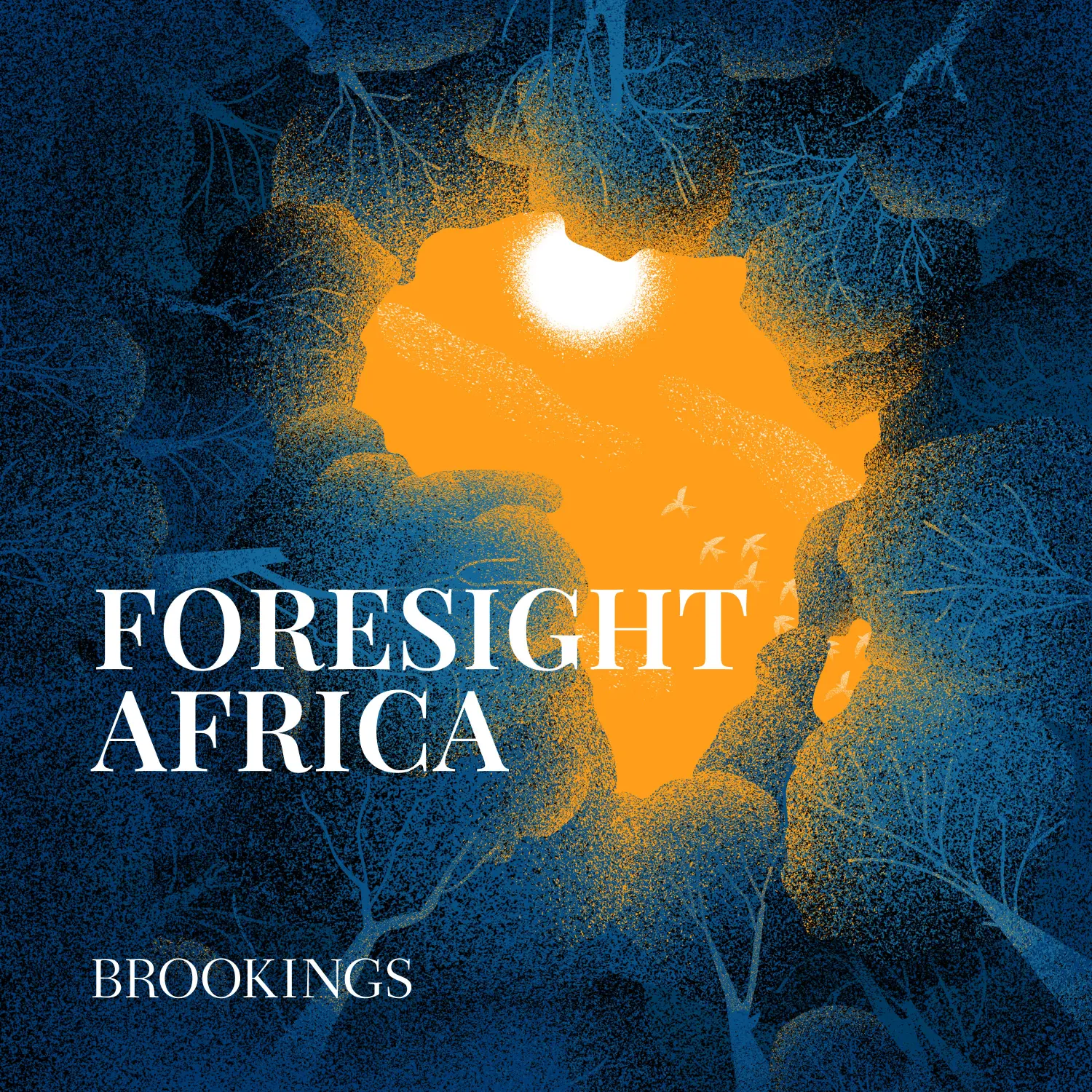
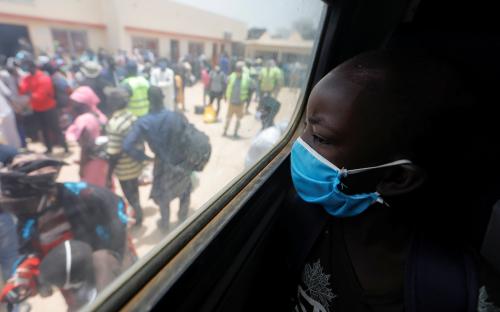
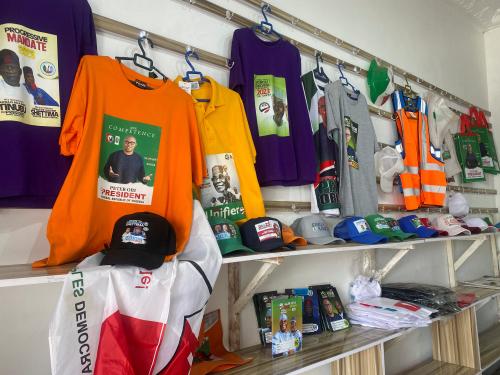
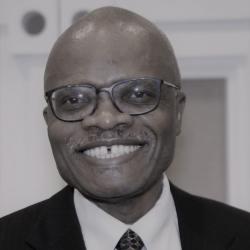
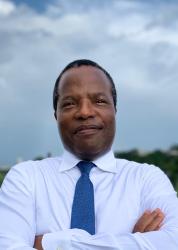
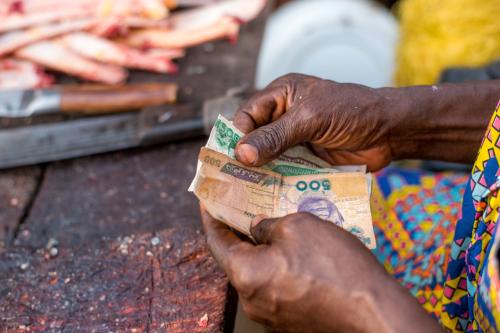
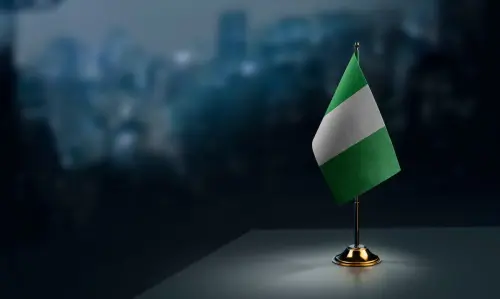
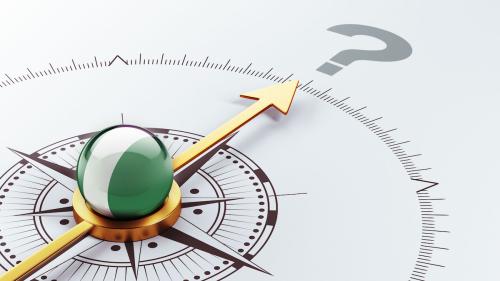
Commentary
PodcastWas Nigeria’s presidential election fair?
April 5, 2023
Listen on
Foresight Africa Podcast